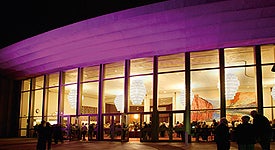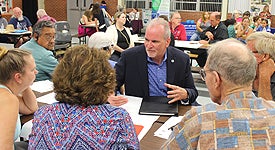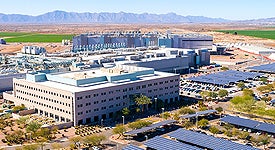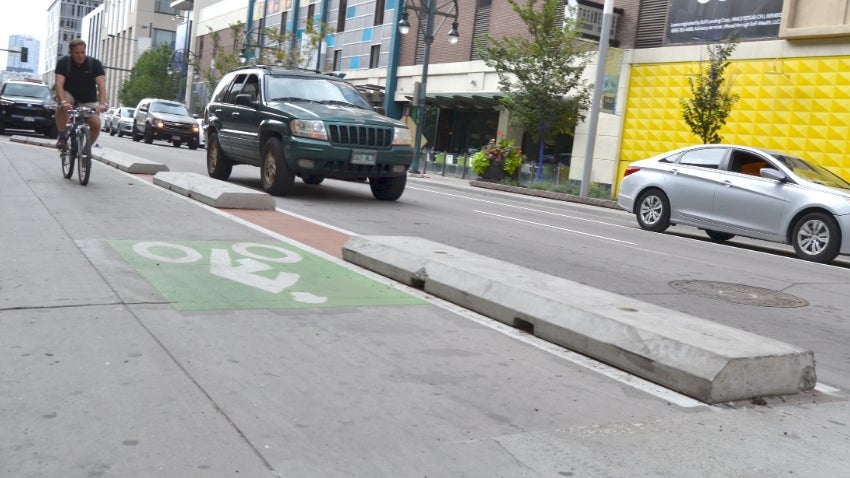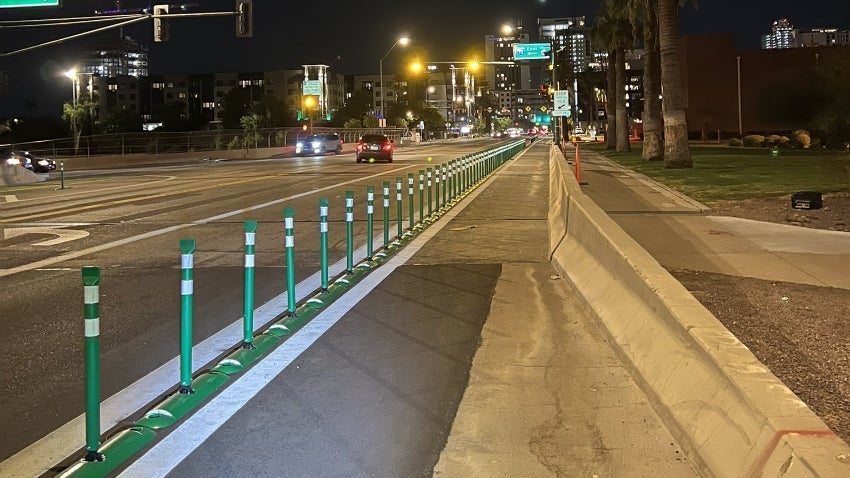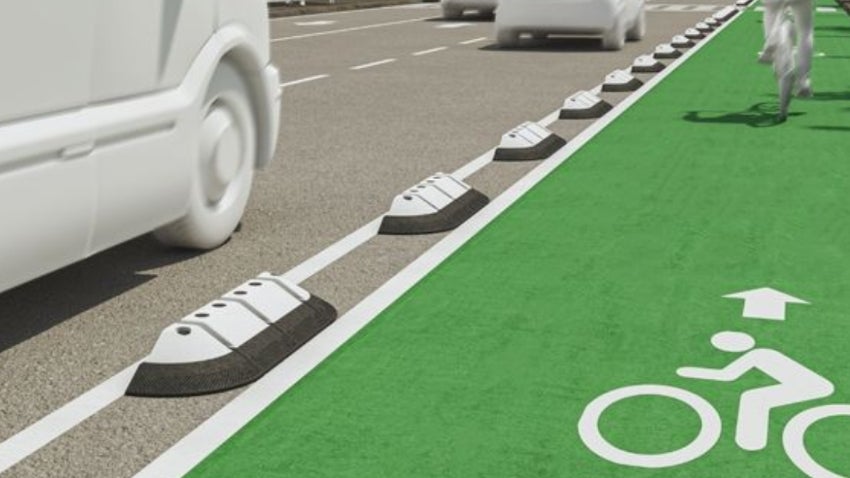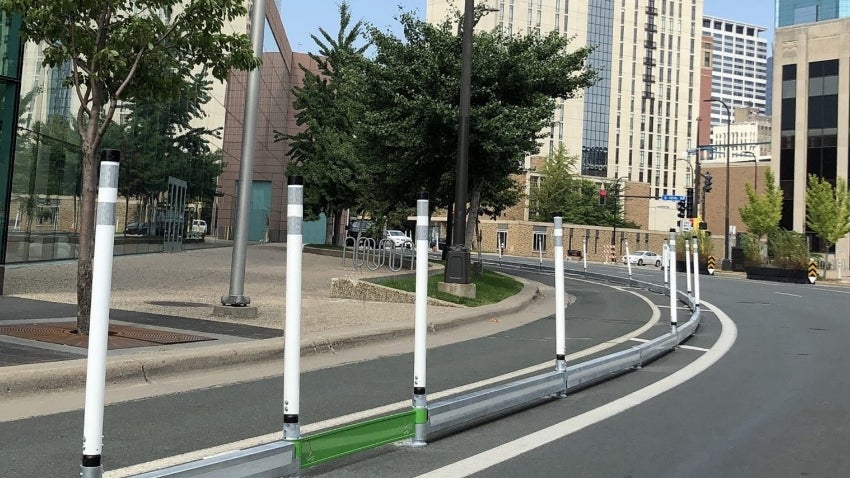
The City of Chandler conducted a nine-month study to evaluate the feasibility of upgrading existing bike lanes to protected bike lanes on arterials and collectors.
While the City of Chandler Transportation Master Plan identified four corridors for protected bike lanes, the city - with feedback received from residents – would like to increase the number of protected bike lanes in other parts of the city as well.
This project analyzed both existing and planned bike lanes on arterial and collector streets and determined which bike lanes could be converted to protected lanes without removing a vehicle lane or widening the roadway.
This work effort also determined design criteria for protected bike lanes that outline the needed space on a roadway and elements to include for a protected bike facility. Key factors in the design guidelines included lower cost, protection, installation/replication, and aesthetics.
This final report includes:
- protected bike lane design criteria,
- the feasibility of converting existing and planned bike lanes to protected bike lanes in the City of Chandler, and
- a prioritized list of locations for implementation that can serve as a guide for future implementation.
This study is being done in partnership with the Maricopa Association of Governments.
The draft final report is now available while the report is being finalized.
2019 – Chandler Transportation Master Plan 2019 Update
Residents expressed a strong interest in being able to bike as a form of transportation but indicated that they are not willing to use unprotected bike lanes next to high- speed traffic on arterial streets.
2020 – Present: Frye Road Protected Bike Lane
The City began studying it’s first protected bike lane on Frye Rd. between Fairview Street to Paseo Trail (west of Cooper Rd.) in 2020 and will be completing design and going to construction in the fall of 2023.
2021 – 2022: Capital Improvement Program (CIP) 2023 – 2032
The current adopted 10-Year CIP dedicates $950,000 to install protected bike lanes beginning in FY2023/24. With this is funding, it is estimated a total of 2.5 miles of protected bike lanes will be installed within 10 years.
A protected bike lane (PBL) is a bike facility that includes some type of physical and vertical separation between the bike lane and vehicle travel lanes. Protected bike lanes consist of four elements:
- Bike lane
- Buffer
- Vertical separation
- Striping and marking
There are a variety of vertical separation options that will be explored through this study effort. Factors that Chandler will consider when evaluating vertical options are: high protection quality, lower cost options, easy to install and replicate, and aesthetics.
The Protected Bike Lane Feasibility study is a 9-month work effort, beginning in December 2022 with anticipated completion by August 2023. There are five components to the study:
- Data collection and analysis
- Protected Bike Lane Design Guidelines
- Protected Bike Lane Feasibility Analysis
- Stakeholder & Community Engagement
- Study Report & Implementation
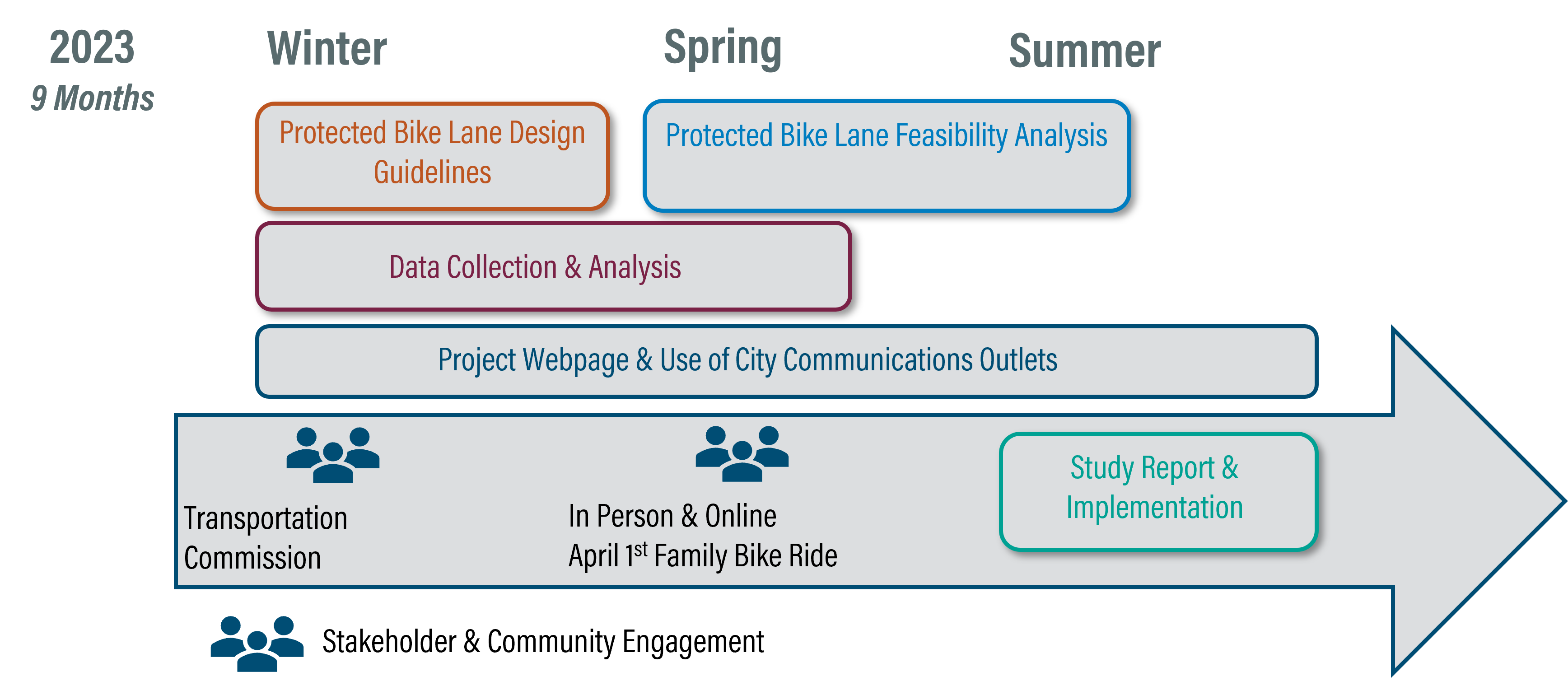
As the data collection and analysis of the project progresses, staff will be sharing the draft results and asking for input from community members to prioritize locations, routes, and areas of the city to upgrade bike facilities to protected bike lanes.
Anticipated Information and Engagement Opportunities
- January 18, 2023 – Chandler Transportation Commission
- Late-March to April 2023 – Community Events and Online
- Public Involvement Summary
- Final Protected Bike Lines Survey Summary
- May 2023 - Chandler Transportation Commission
- August 2023 - Chandler Transportation Commission
There are four components of a protected bike lane:
- the bike lane
- buffer zone
- vertical elements
- striping, signs & markings
To understand how much space is needed to install a protected bike lane, and components, Protected Bike Lane Design Guidelines will be developed. Additional information will be available in April 2023.
This project will analyze both existing and planned bike lanes on arterial and collector streets and determine which bike lanes could be converted to protected lanes without removing a vehicle lane or widening the roadway.
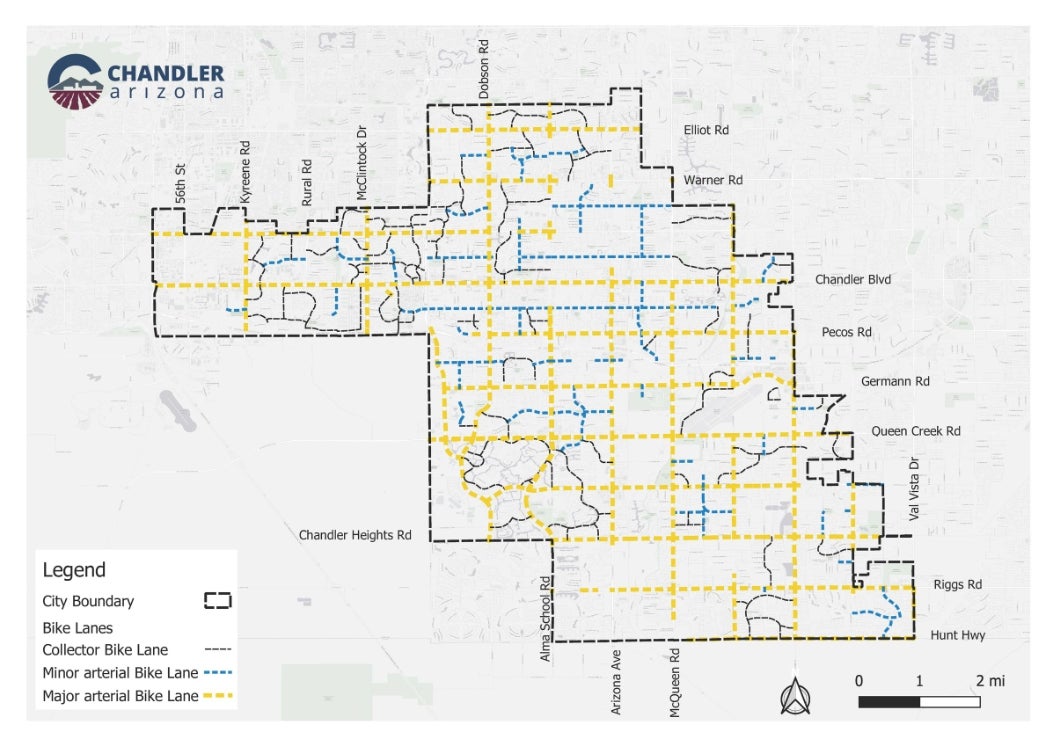
Once the corridors are identified for feasibility for upgrading to a protected bike lane, the select group of corridors will be prioritized for implementation based on a set of factors with input and feedback from the community.
Factors that could be considered in prioritization:
- Attractors: parks, schools, shopping, library, etc.
- Low stress
- Land use
- Demographic information
- Proximity to transit
- Existing bike routes and activity
- Bicycle and pedestrian safety metrics
- Vehicle volumes and/or speed
- Other metrics and/ or qualitative considerations
This final report will include protected bike lane design criteria, determine the feasibility of converting existing and planned bike lanes to protected bike lanes in the City of Chandler, and develop a prioritized list of locations for implementation. The list will be implemented through the funding identified in Chandler’s CIP.
Contact Us
Transportation Policy Division
480-782-3440
City of Chandler Title VI Notice to the Public
The City of Chandler hereby gives public notice that it is the City’s policy to assure full compliance with Title VI of the Civil Rights Act of 1964, the Civil Rights Restoration Act of 1987, and related statutes and regulations in all programs and activities. Title VI requires that no person shall, on the grounds of race, color, sex, national origin, age or disability be excluded from the participation in, be denied the benefits of, or be otherwise subjected to discrimination under any Federal Aid Highway program or other activity for which the City receives Federal financial assistance.
Any person, who believes his/her Title VI protection has been violated, may file a complaint. Any such complaint must be in writing and filed with the City’s Title VI Program Manager within one hundred eighty (180) days following the date of the alleged discriminatory occurrence. Title VI Discrimination Complaint Forms may be obtained from the City by contacting 480-782-3349 (or 711 via AZ Relay Service).
